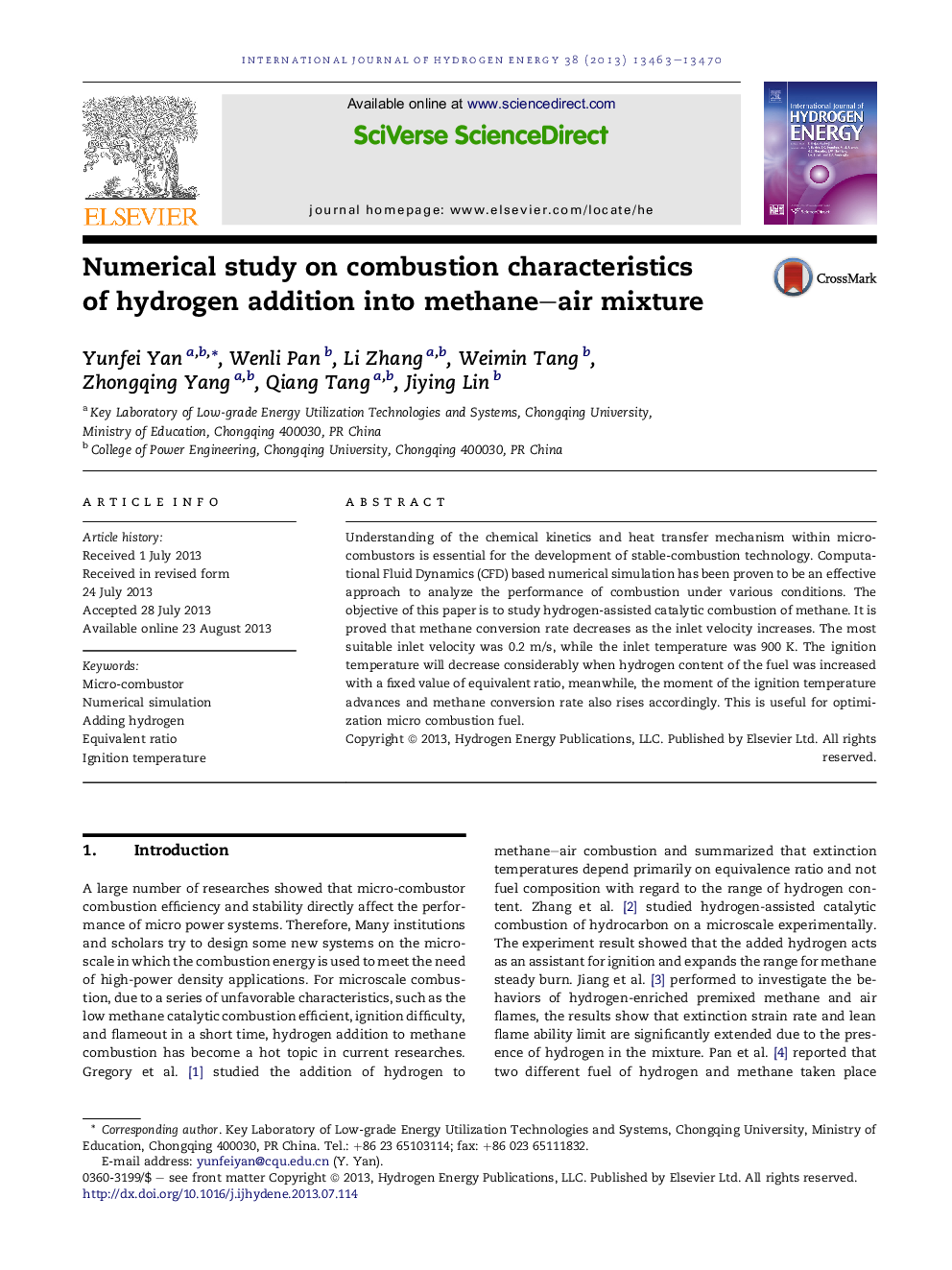| Article ID | Journal | Published Year | Pages | File Type |
|---|---|---|---|---|
| 1273353 | International Journal of Hydrogen Energy | 2013 | 8 Pages |
•Combustion characteristics of hydrogen addition on fuel was simulated.•Physical models with and without catalyst were compared.•Conversion rate of methane and hydrogen in the presence of catalyst improve significantly.•Addition of hydrogen supply enough heat for fuel to reach an ignition temperature.•Methane conversion increased as the wall temperature increases.
Understanding of the chemical kinetics and heat transfer mechanism within micro-combustors is essential for the development of stable-combustion technology. Computational Fluid Dynamics (CFD) based numerical simulation has been proven to be an effective approach to analyze the performance of combustion under various conditions. The objective of this paper is to study hydrogen-assisted catalytic combustion of methane. It is proved that methane conversion rate decreases as the inlet velocity increases. The most suitable inlet velocity was 0.2 m/s, while the inlet temperature was 900 K. The ignition temperature will decrease considerably when hydrogen content of the fuel was increased with a fixed value of equivalent ratio, meanwhile, the moment of the ignition temperature advances and methane conversion rate also rises accordingly. This is useful for optimization micro combustion fuel.
